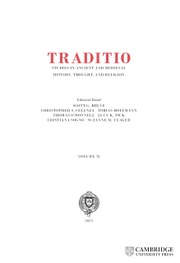Thinking about Animals in Thirteenth-Century Paris
Exploring what theologians at the University of Paris in the thirteenth century understood about the boundary between humans and animals, this book demonstrates the great variety of ways in which they held similarity and difference in productive tension. Analysing key theological works, Ian P. Wei presents extended close readings of William of Auvergne, the Summa Halensis, Bonaventure, Albert the Great and Thomas Aquinas. These scholars found it useful to consider animals and humans together, especially with regard to animal knowledge and behaviour, when discussing issues including creation, the fall, divine providence, the heavens, angels and demons, virtues and passions. While they frequently stressed that animals had been created for use by humans, and sometimes treated them as tools employed by God to shape human behaviour, animals were also analytical tools for the theologians themselves. This study thus reveals how animals became a crucial resource for generating knowledge of God and the whole of creation.
- Resonates with current debates about what defines humanity and how humans should relate to other creatures
- Presents extended close reading of key texts, including by William of Auvergne, Bonaventure, Albert the Great and Thomas Aquinas
- Demonstrates the crucial importance of animals for understanding medieval attitudes towards the whole of creation and the creator
Reviews & endorsements
‘Short, elegant and beautifully written, this study rests upon Ian P. Wei’s outstanding combination of knowledge and technical mastery in this field. It succeeds brilliantly in exploring what the five most important theologians in thirteenth-century Paris had to say about the similarities and differences of humans and animals, and its emphasis on William of Auvergne makes an unusual and very original thinker better known. The extensiveness of Wei’s deft and precise translations give this work an additional role as an invaluable and accessible resource-book with original Latin provided in the footnotes.' Pete Biller, University of York
'The ingenious theologians of the early university of Paris used thinking about animals as a way of answering questions about what made humans human. Ian Wei’s elegant presentation of their writings lets us see how they used animals to investigate human exceptionalism, as well as the nature of creation itself.' Lesley Smith, University of Oxford
‘… he has produced a work of such depth and clarity that its ideas both illuminate their own time period and resonate into the present day.’ Summer Lizer, Comitatus
‘Overall, Wei’s book is an important addition to the scholarly literature. Since it does not require special background knowledge of medieval philosophy or theology, it can be recommended to anyone interested in medieval ways of thinking about animals.’ Juhana Toivanen, Speculum
Product details
August 2024Paperback
9781108821728
236 pages
229 × 152 × 13 mm
0.35kg
Available
Table of Contents
- Introduction
- 1. William of Auvergne
- 2. The Summa Halensis and Bonaventure
- 3. Albert the Great and Thomas Aquinas
- Conclusion.

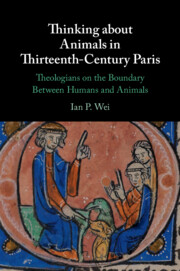
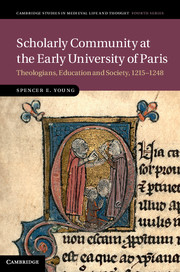
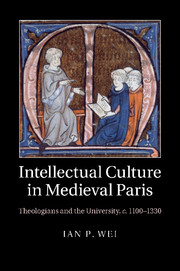
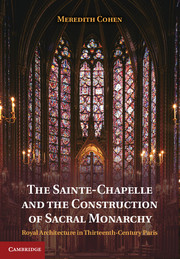


.jpg)
